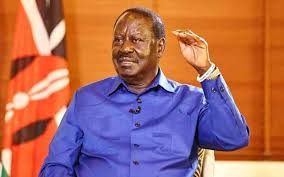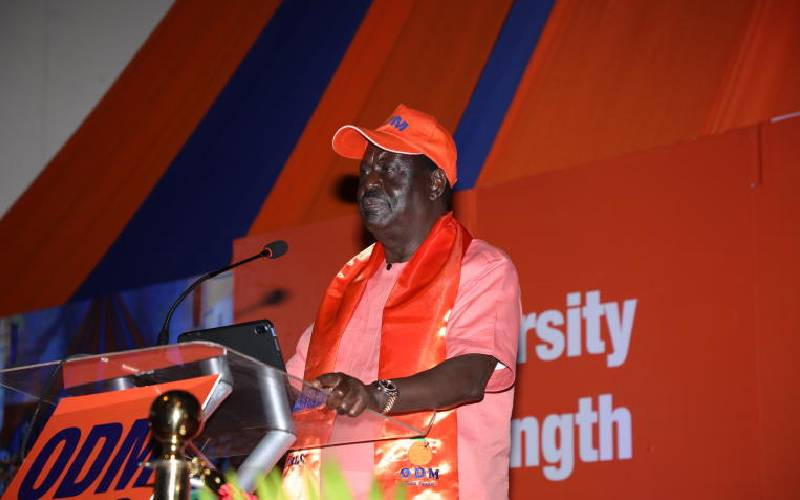In a recent speech arguing against the use of the Independent Electoral and Boundaries Commission (IEBC) in the nomination of Political Parties as advocated by the soon-to-be-formed Jubilee Party, CORD leader Raila Odinga stated Political Parties were private entities and that IEBC should not be called in to manage the nomination process of any political party, nor should the political parties be required to use the IEBC or other processes.
He additionally stated that the public has no basis in seeking to know how the internal process of nominating candidates for a General Election is carried on. Further that the law has no business regulating that internal process of political parties.
That is old school thinking, which is no longer valid within our Constitution; unfortunately, Mr Odinga is not alone in this thinking. Many of the old-time political leaders think that political parties are private entities as they used to be in the time preceding the promulgation of the Constitution of Kenya 2010.
Prior to August 27, 2010, political parties existed and were registered as societies through a legislative process.
Come the 2010 Constitution, political parties were elavated to constitutional organs established and regulated by and under the Constitution.
The Constitution mandates the existence of political parties and predicates the democratic exercise of political power upon the existence of several such political parties. It outlaws single-party or no-party political systems and requires that there be several political parties.
In part Three of Chapter Seven of the Constitution, provision is made in Article 91 of the basic requirements for political parties. In Article 92, Parliament is required to enact legislation to provide for various aspects of the operation and regulation of political parties. Pursuant to this provision, Parliament enacted the Political Parties Act, 2011 which provides for the registration, regulation and funding of political parties.
That Act provides, among other things, the establishment of a Fund to be known as the Political Parties Fund, which is to receive funds from, amongst other sources, the public revenues.
The Act also establishes the office of the Registrar of Political Parties whose function is, among many other functions, to register, regulate, monitor, investigate and supervise political parties to ensure compliance with that Act.
Further, Article 88 of the Constitution establishes the Independent Electoral and Boundaries Commission which is responsible for, amongst other things, "conducting or supervising referenda and elections to any elective body or office established by the Constitution and any other elections as prescribed by an Act of Parliament and, in particular, for: the continuous registration of citizens as voters; the regular revision of the voters' roll; the delimitation of constituencies and wards and the regulation of the process by which parties nominate candidates for elections."
It is therefore clear from the above, that political parties are no longer private entities and the IEBC has a constitutional mandate to regulate the process by which parties nominate candidates for elections, and in addition it has the duty to conduct or supervise such elections.
Lastly, I wish to draw attention to one of the basic requirements of political parties is stipulated in Article 91(1) (d) of the Constitution which requires that, every political party abide by the democratic principles of good governance, promote and practice democracy through regular, fair and free elections within the parties.
 The Standard Group Plc is a
multi-media organization with investments in media platforms spanning newspaper
print operations, television, radio broadcasting, digital and online services. The
Standard Group is recognized as a leading multi-media house in Kenya with a key
influence in matters of national and international interest.
The Standard Group Plc is a
multi-media organization with investments in media platforms spanning newspaper
print operations, television, radio broadcasting, digital and online services. The
Standard Group is recognized as a leading multi-media house in Kenya with a key
influence in matters of national and international interest.
 The Standard Group Plc is a
multi-media organization with investments in media platforms spanning newspaper
print operations, television, radio broadcasting, digital and online services. The
Standard Group is recognized as a leading multi-media house in Kenya with a key
influence in matters of national and international interest.
The Standard Group Plc is a
multi-media organization with investments in media platforms spanning newspaper
print operations, television, radio broadcasting, digital and online services. The
Standard Group is recognized as a leading multi-media house in Kenya with a key
influence in matters of national and international interest.









